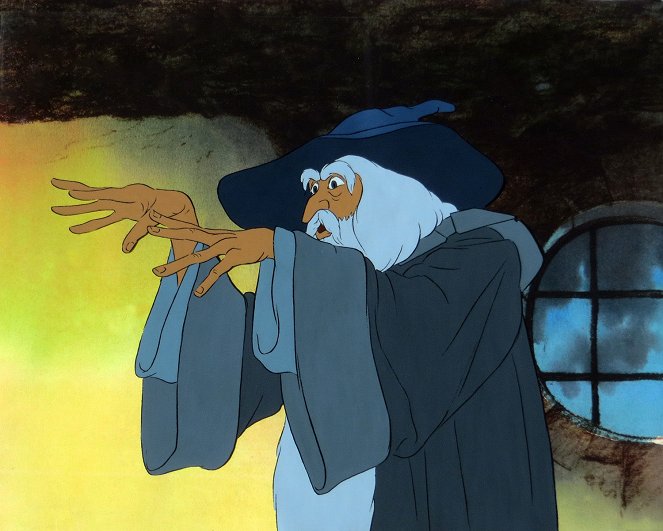Regie:
Ralph BakshiKamera:
Timothy GalfasMusik:
Leonard RosenmanBesetzung:
Dominic Guard, John Hurt, Simon Chandler, Anthony Daniels, André Morell, Annette Crosbie, Bernard Dhéran, Georges Poujouly, Pierre Arditi, Henri Poirier (mehr)Streaming (2)
Inhalte(1)
Der tapfere kleine Hobbit Frodo bekommt vom Zauberer Gandalf einen Auftrag, bei dem das Schicksal seiner zauberhaften Heimat "Mittelerde" auf dem Spiel steht Im Land des dunklen Herrschers Sauron soll er einen sagenumwobenen Zauberring ins Feuer des Schicksalsberges werfen. Denn Sauron hat es auf den Ring, mit dem er die ganze Welt kontrollieren kann, abgesehen. Sollte er den Ring bekommen bevor Frodo ihn zerstören kann, so wird er nicht nur das Schattenreich, sondern ganz "Mittelerde" mit seiner bösen Herrschaft überziehen. (Verleiher-Text)
(mehr)Kritiken (1)
The cult work of J.R.R. Tolkien remained outside filmmakers' field of vision for a very long time, basically for two reasons. Firstly, as a typical conservative, Tolkien was distrustful of media other than those he knew intimately and worked with. He simply did not want to vulgarize and massify his work, entrusting it to a film studio to handle the story according to their will and regardless of the author's intentions. Secondly, and above all, grand epic fantasy was regarded as unfilmable for a long time. As we know, modern technology buried this prejudice long ago. Today, the limit is only the budget and human creativity. However, even in the distant past, there was an escape route in the form of an animated film, which managed to bypass most of the obstacles. But when someone finally took up the challenge, it resulted in only a skeleton of the tale, which does not even have exceptional visual aspects (especially the hobbits rather repulsed me instead of sympathizing with them). This Lord of the Rings simply did not make a mark on the world and the second part was never made. After Jackson's grandly filmed trilogy, except for fans of film history, there is no need to revisit Bakshi's film. Overall impression: 40%.
()

